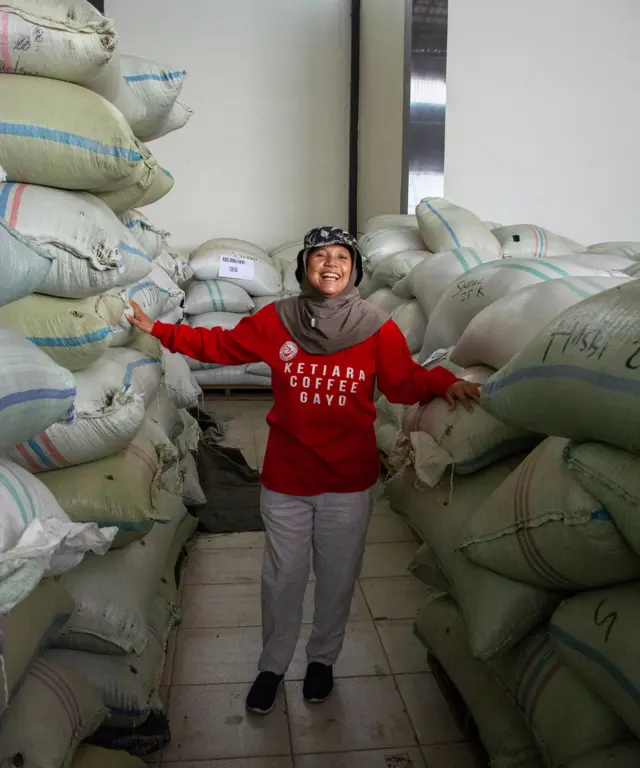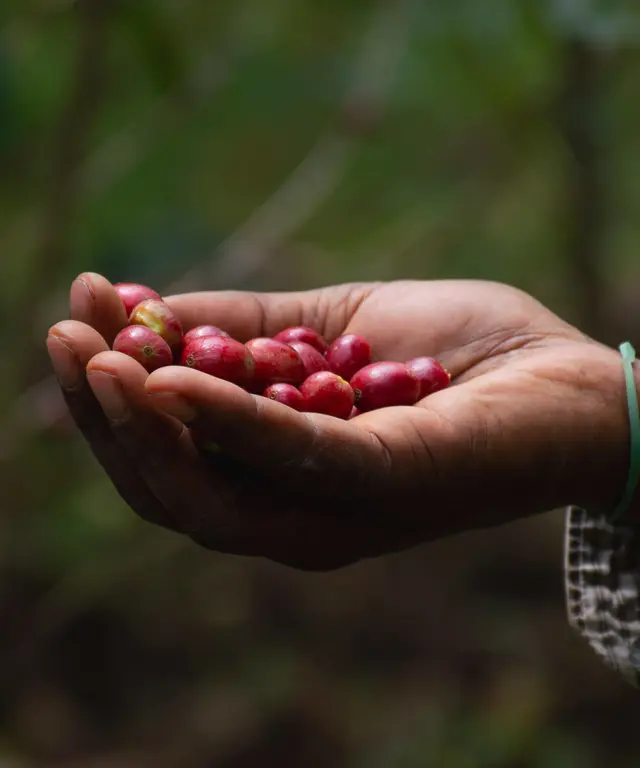Ethical Coffee Sourcing and Pricing Stability: A Green Coffee Buyer’s Perspective
By Johan Blasberg, Green Coffee Buyer and Sourcing Lead at Scanomat
Coffee is grown on 12.5 million farms worldwide, most of them no larger than two hectares. For decades, in many coffee-growing regions, farming families have had few economic alternatives, and over the past two decades, low and volatile coffee prices have had a devastating impact on their livelihoods.
A 2021 analysis by Columbia University found that in 8 out of 10 coffee-producing countries, the average income from coffee is at or below the poverty line. Data from the 2023 Coffee Barometer further illustrates this reality, comparing estimated coffee incomes across different countries to the amount needed for a living income, the bare minimum required for a household to afford food, housing, healthcare, education, and other essentials.
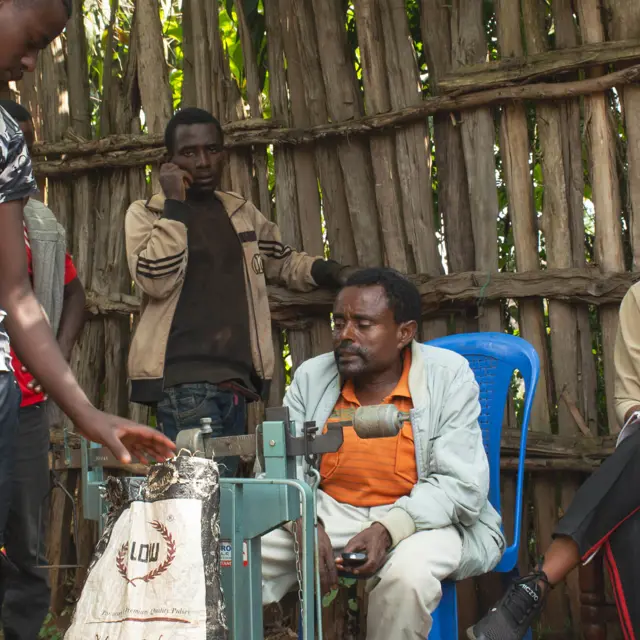
At Nasir's farm, neighbours and smallholders are paid upon delivery. We paid 169,0% above the C-market price for this lot.
The Living Income Gap in Coffee-Producing Countries
The Living Income Gap in Coffee-Producing Countries
The numbers speak for themselves. While Brazil is the only country where some producers earn a net income above certain living income estimates, farmers in countries like Peru, Ethiopia, and Indonesia earn far below what is needed to sustain a household.
In Uganda, for instance, the average coffee-growing household earns just $88 per year from coffee, while living income benchmarks range between $2,000 and $6,000.
These challenges have made living income a priority for sustainability initiatives, with organisations such as the Global Coffee Platform and the Sustainable Coffee Challenge advocating for better pricing structures. At Scanomat, we align with these efforts through our sourcing approach, ensuring that pricing is paired with long-term partnerships and direct trade commitments that prioritise stability for producers.
However, while industry-wide efforts to improve farmer incomes are essential, many producers still do not earn enough to make coffee a viable livelihood. Higher prices alone are not enough. Predictability, ethical sourcing, and reinvestment in farming communities all play a role in creating a more sustainable coffee economy.
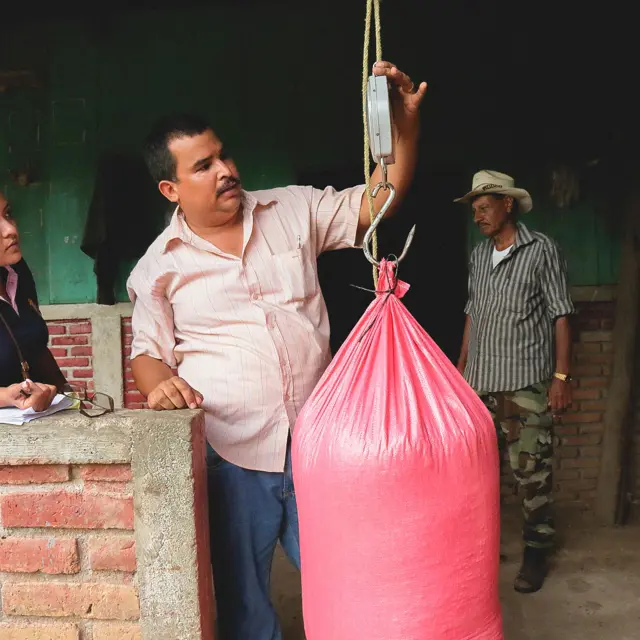
In Nicaragua, prices are negotiated a few weeks before delivery. Farmers are free to sell to whomever they wish, but over the years, Frederik, our local partner in Nicaragua, has built a solid network, offering good prices and agronomical assistance. We paid 32,6% above the market price in 2024.
72,4% above the C-market price
Our coffee from Ketiara, our Indonesian partner, is grown, sold, and exported by the cooperative itself. In 2024, we paid 72,4% above the C-market price.
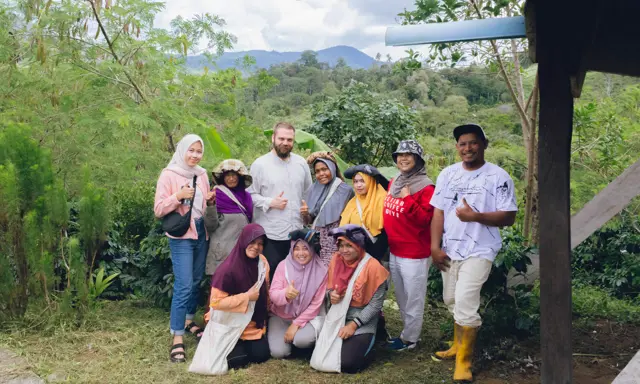
Our Approach to Ethical Coffee Sourcing and Fair Compensation
Our Approach to Ethical Coffee Sourcing and Fair Compensation
Given these industry-wide challenges, companies that are serious about sustainability must take action. At Scanomat, we have structured our sourcing strategy to prioritise fair compensation and long-term stability for producers.
In the 23/24 season, we paid on average 51.0% above the C-market price (FOB), reflecting our commitment to high-quality coffee and more equitable pricing for producers. While higher-quality coffee comes with increased costs, such as more meticulous sorting and higher waste, this premium remains an important benchmark in comparing coffee prices across the industry.
When adjusting for purchasing volumes, the weighted average price above the C-market (FOB) was 36.2%. The difference between these two numbers is largely due to our structured pricing agreement in Brazil, where we work directly with an individual farm owner. Instead of fluctuating with the market, we have mutually agreed on stabilised prices that provide consistency across multiple seasons. In years when the market is low, the farm secures a higher price, in high-market years, we receive a more competitive rate.
We believe that paying more for coffee is only part of the solution. How and when those payments are made matters just as much. Long-term stability often provides greater security than short-term price spikes, and structuring agreements over time offers producers more predictability. Our approach ensures that the additional costs of producing high-quality coffee are accounted for, creating a more reliable income rather than just a temporary premium.
Navigating Coffee Market Volatility With Direct Trade and Stable Pricing
Navigating Coffee Market Volatility With Direct Trade and Stable Pricing
As we move through the 24/25 season, the market has shifted dramatically. Arabica coffee futures have surged 70% since November 2024, driven by lower production in key growing regions, particularly Brazil. Prices at these levels create uncertainty across the supply chain, with many traders and roasters delaying purchases or renegotiating contracts, hesitant to commit in such volatile conditions.
While some industry players have responded by pulling back or revising commitments, Scanomat has remained committed to our approach. We continue to honour our agreements, even as the market has surged to unprecedented levels. This has required some renegotiations, but our priority has remained ensuring that farmers are compensated fairly and never locked into agreements that work against them. Our long-term trade relationships provide a foundation of trust and allow us to navigate these fluctuations while maintaining a transparent and mutually beneficial approach.
This is where supply chain structure matters. Because of the way we build our relationships, we feel confident that in almost all cases, the extra money we pay reaches farmers directly, not just through price premiums but through pricing strategies that prioritise stability over speculation. Unlike many farmers who remain exposed to unstable buyers and shifting market dynamics, those in our network benefit from more predictable pricing and greater financial security.
Offering coffee farmers better terms
Our Mexican partner Edelmira works similar to Frederik in Nicaragua, by offering farmers better terms and prices than other traders in the area. Last harvest we paid 61,3% above C-market prices.
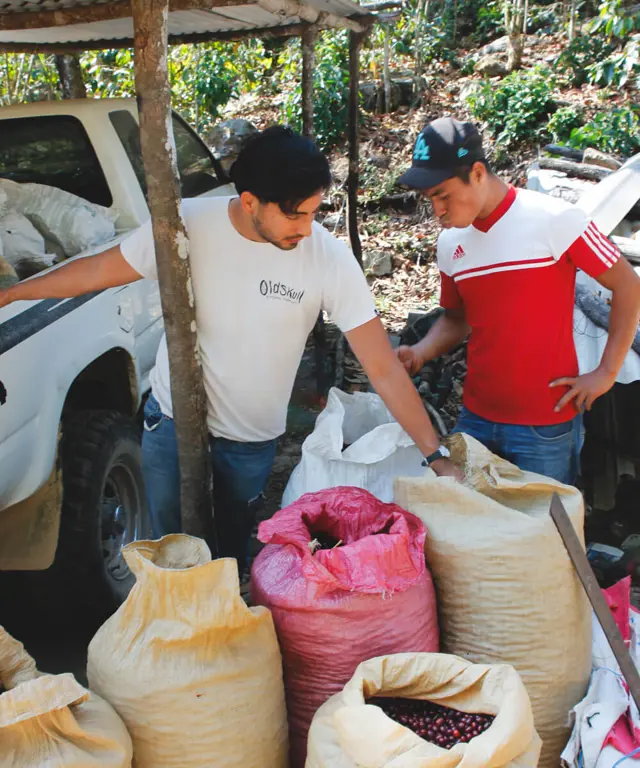
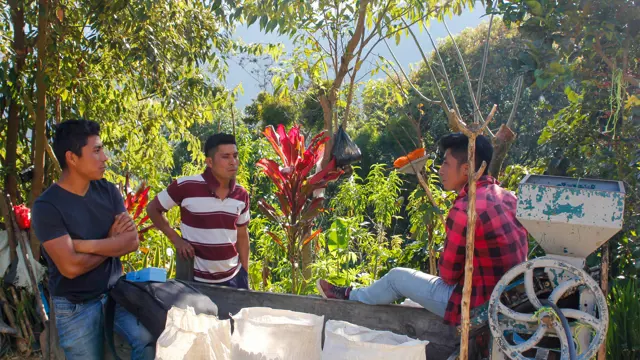
Why Long-Term Coffee Sourcing Strategies Matter for Sustainability
What we need to change?
We are entering a new market reality; one where high coffee prices may be here to stay. Structural shifts in production, climate pressures, and evolving demand suggest that the era of consistently low prices is unlikely to return. Rather than resisting this change, the industry must adapt by treating coffee with the respect it deserves, much like other high-quality, experience-driven goods.
However, if history has taught us anything, price crashes are inevitable. When they happen, farmers will once again bear the brunt of the downturn, except for those in networks built to protect them. This is why long-term stability must take priority over short-term fluctuations. At Scanomat, we ensure that producers in our network remain shielded from market volatility through structured pricing agreements and direct trade relationships.
Sustainability isn’t just about paying more; it’s about ensuring coffee remains a viable livelihood in both high and low market conditions. The real question is no longer whether coffee can be ethically sourced, it’s whether it can be economically sustainable for the people who grow it, regardless of market shifts.
Read more about Amokka®
(2)
